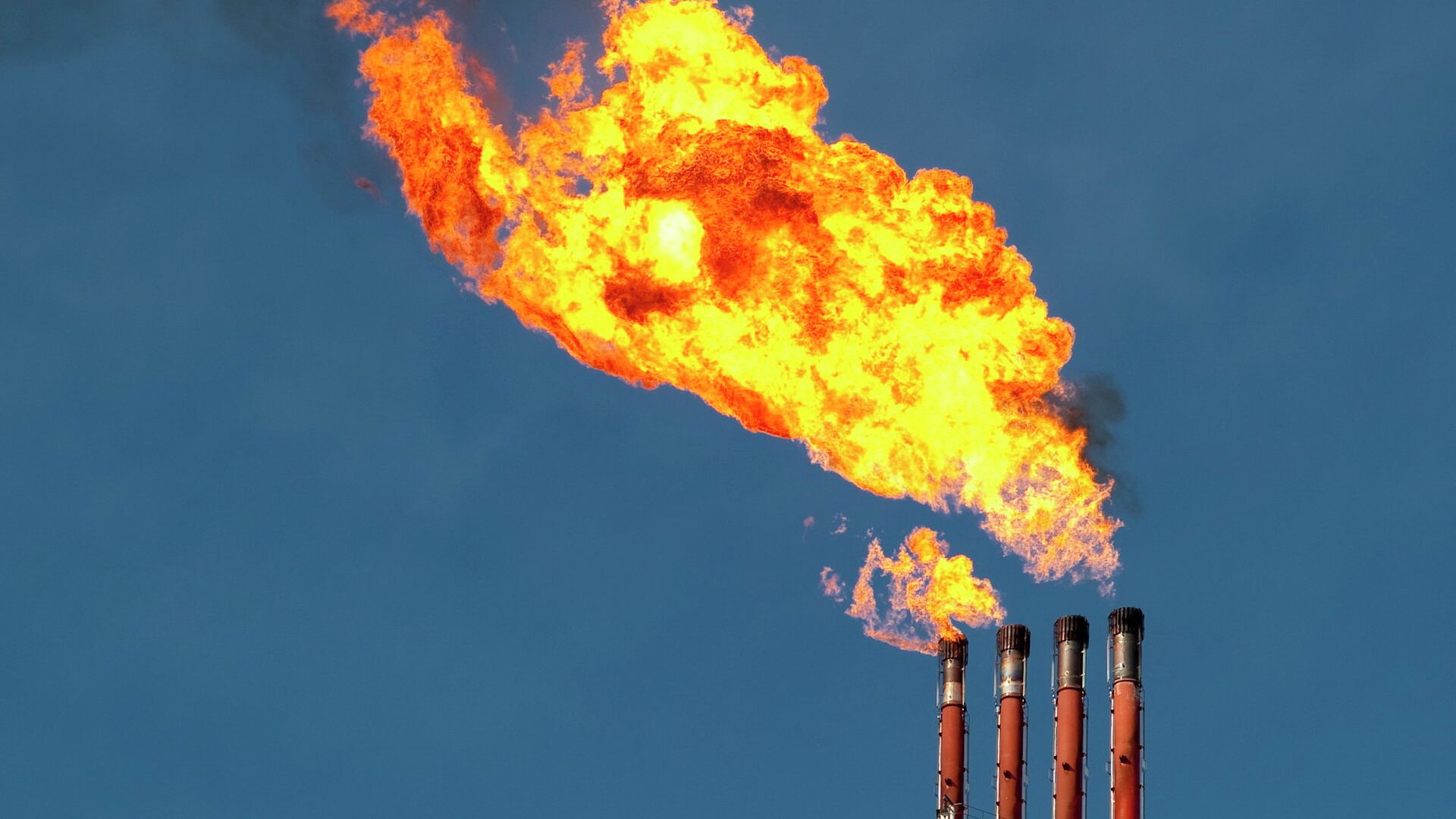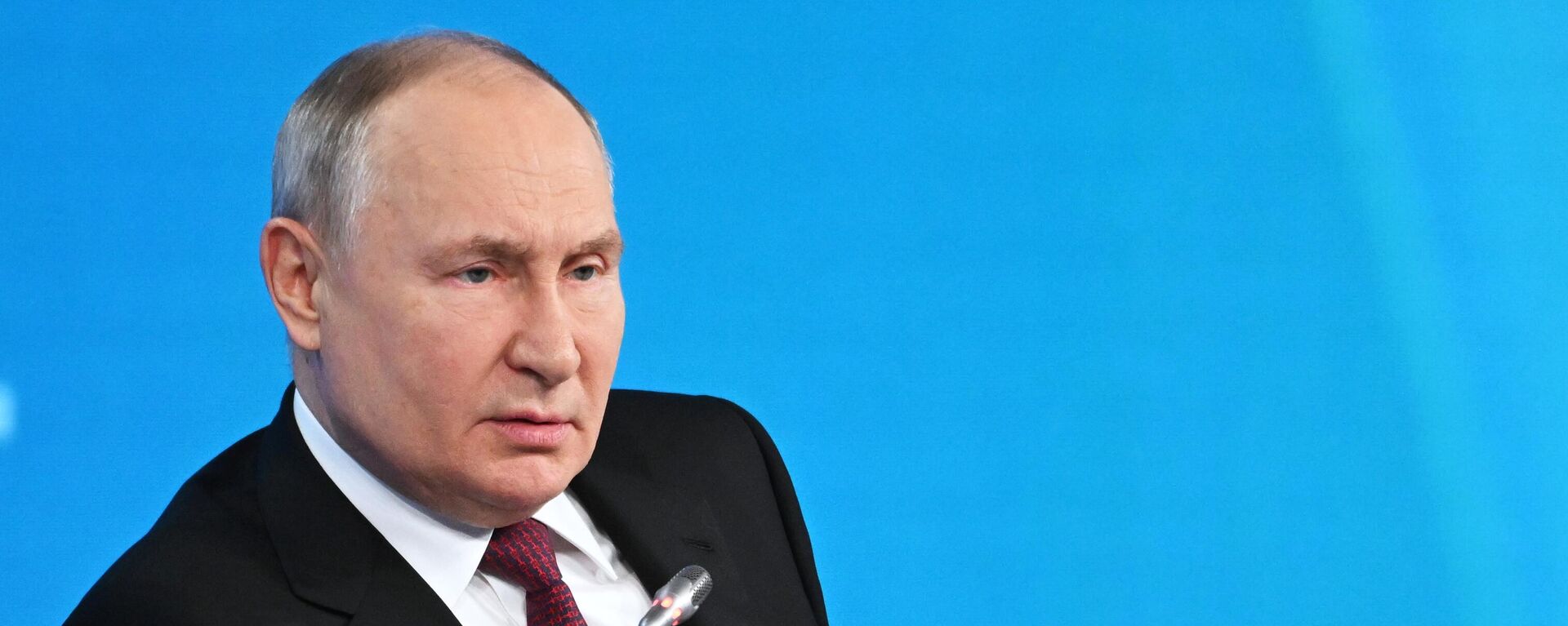Gas in Africa to Play Key Role in Energy Transition, Manager of Mozambican Energy Company Says
16:50 12.10.2023 (Updated: 19:49 12.10.2023)

© Sputnik . Sergey Krasnouhov
/ Subscribe
On October 11-13, the Russian capital Moscow is hosting the Russian Energy Week-2023 (REW), which brought together more than 4,000 participants from over 60 countries. The main topic of the event is the "New Reality of Global Energy: Creating the Future."
Gas in Africa will play a pivotal role in the energy transition, Eucides Dgedge, project manager of Business Development Directorate of Eletricidade de Mozambique, a state-owned energy company, told Sputnik Africa on the sidelines of the REW.
"Of course, gas in Africa, not only in Mozambique, but in Africa, will play a very key role in the energy transition," the manager said.
He noted that now Mozambique is developing gas to power projects as the amount of this resource discovered in the country promises the decrease in the prices of energy production using this kind of fuel.
"Yeah, of course, the gas will be a very important resource for the energy transition. And now, we are currently developing some gas to power projects because with this amount of gas that we discovered, the prices of energy production with gas will come down," Dgedge revealed.
However, the manager highlighted that the state is "very much affected by geopolitical crises," citing as an example the situation in the northern part of Mozambique, which made the country to lead the development of natural gas production there "to a forced measure."
He added though that "now the construction will be resuming," and the state hopes "o get as much as [it] can from the gas that will be produced in the north of Mozambique"
Since 2017, Mozambique's northern province of Cabo Delgado has suffered from jihadists' attempts to establish an Islamic state there. The insurgency has claimed thousands of lives and led to disruption of multi-billion dollar energy projects in the province.
According to Dgedge, apart from gas, the country is trying to make use of its other resources such as hydropower and solar energy, noting that there are some agreements between the African state and Russia in the hydropower sector.
"On the other hand, we have a number of different resources like hydropower and solar and so on that we are trying to make use of. And as [Russian] President Vladimir Putin spoke yesterday, Russia has experience in hydropower, and we just signed two months ago a collaboration agreement with a Russian company to produce and to explore opportunities in the hydropower sector," he underlined.
On the plenary session of the REW, Putin delivered a speech, in which he underlined that RusHydro – Russia's largest hydro-generating company – is one of the world leaders in the field of clean and green hydropower. The president also said that Russia has built about 350 hydroelectric facilities in 54 countries, including in Africa and Latin America.
Commenting on Russia's role in developing Mozambique's energy sector, Dgedge emphasized that Russia can contribute to the African nations's sector by establishing "mobile plants to invest in transmission infrastructure."
"So we want to capitalize these opportunities, because on the one hand we have the resources, we have the potential, in the other hand we have the opportunities that are not only in Mozambique but in the region. So the role that Russia can play, and is already playing, in the Mozambican sector is to develop mobile plants to invest in transmission infrastructure, which is a considerable barrier to capitalize the opportunities that we see in the region now," the manager stressed.
Moreover, he noted that Mozambican authorities aim to turn the country into "a hub of electricity" in the southern African region.
"One of the main objectives of the Mozambican government is to become one of the main electricity producers in the southern African region. So we want to become a regional hub of electricity. As you know, now, there is a huge lack of electricity in the southern region of Africa with the crisis that South Africa is facing and all the opportunities that we see in the region," Dgedge said.
Apart from this, the manager highlighted that the country wishes to "have 100% access to electricity by 2030," therefore "building new power plants and building new infrastructure will help [Mozambique] a lot."
Speaking about the challenges for Mozambique's economy and energy security, the manager mentioned the recently escalated Israeli-Palestinian conflict and the COVID-19 pandemic as the situations that render the prices for materials for projects in energy sector "really volatile."
"We had a number of different challenges. The first one that we had in recent years was the COVID situation that affected the prices of the materials. And we believe that any situation like this, and now we have the war, it can affect the prices. This is the main point in which our projects in Mozambique are affected because situations like this makes the prices to be really volatile. And in our economy, as you can imagine, the time that the projects take to be developed is a bit wide. And when we have volatile prices, it affects us a lot in the tariffs, which we are trying to bring down, but the main point is the price," he explained.
Dgedge believes that in order to gain energy sovereignty, it is necessary for African states to continue "exchanging experiences," "replicating the good examples," as well as sending the African youth to study in other countries.
So we understand the challenges that we have in several levels. But one of the ways that we can face this problem is exactly what we are doing now, which is to exchange experiences, see how others do, and try to replicate the good examples in order to be sustainable. And currently we have young people studying in other countries, having experience with some companies and this is something that we have to capitalize to get to the point where we will say: 'Okay, now we can do things on our own. Now we can have some profits to invest in our own infrastructures.' I think this is the way," he underlined.
Recently, Russia has made efforts for cooperation in the field of the academic mobility with African countries, including the field of energy. On September 27, Russia's Tomsk Polytechnic University (TPU) singed an agreement with Nigeria Atomic Energy Commission regarding joint educational programs, including dual degree programs with Nigerian universities, academic exchange, distance learning, seminars, training courses, research in the field of nuclear physics and technology.


